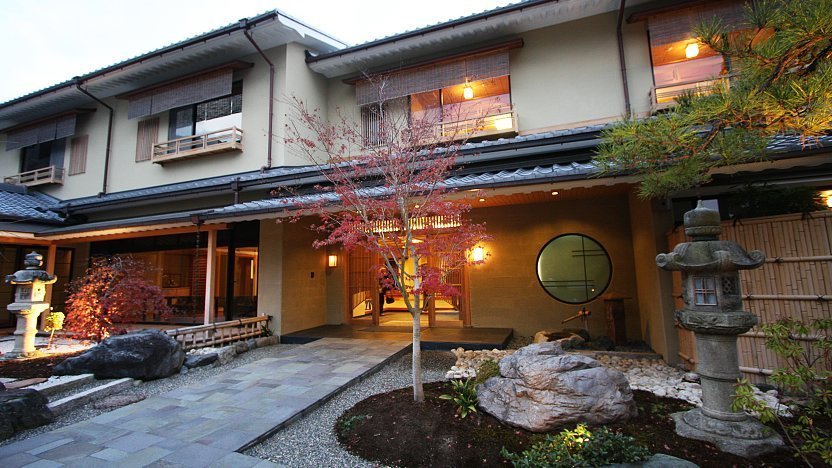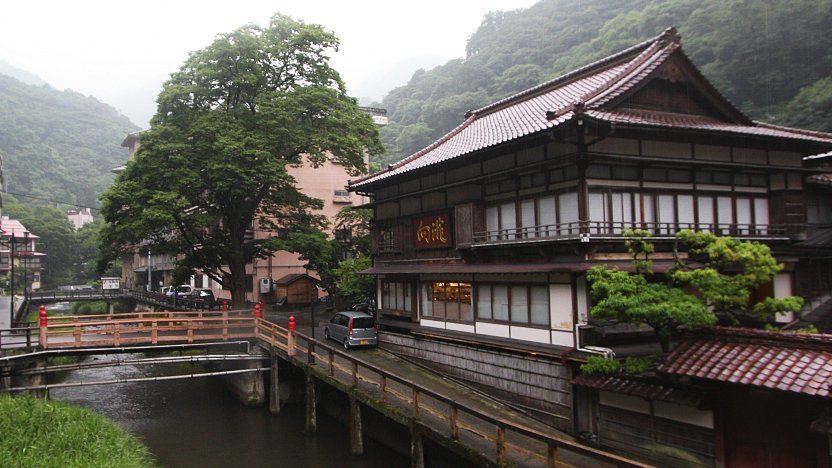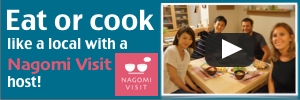Ryokan Guide: Reservations

Where to stay
Ryokan range in size from small, family-run establishments with just a few rooms, to large, modern facilities with hundreds of rooms, guests and staff. They can be found all over the country, especially around hot spring resort towns, and can be categorized into two types: onsen ryokan and city ryokan.
Onsen ryokan (hot spring ryokan)
Japan has hundreds of hot spring resorts, ranging from large towns with numerous huge ryokan to secluded hot springs with a solitary ryokan. Furthermore, the ryokan themselves range from self-contained mega ryokan that offer everything from shopping to entertainment, to old-fashioned ones that encourage their guests to explore the surrounding town.
Many of the older hot spring towns, such as Kusatsu, Kinosaki, Shibu and Nozawa, are centered around public baths (sotoyu). These hot spring towns offer a unique, traditional feel with guests walking about town in yukata and geta (wooden sandals) as they visit the town's shops and baths.
The following is just a small selection of recommended places near Tokyo and Kyoto for an overnight trips to an onsen ryokan:
Near Tokyo:
Near Kyoto:
City ryokan
Ryokan can also be found within large cities, with the main difference to onsen ryokan being that their communal baths are fed by regular tap water instead of hot springs.
Most of the ryokan in Tokyo tend to be older, cheaper establishments that do not include meals and are located in the old shitamachi (lit. low city) districts such as Asakusa. While they present an attractive budget accommodation, they do not offer the typical full ryokan experience, which would be better experienced in one of the hot spring resorts listed above.
Kyoto also has its share of budget ryokan, mainly around Kyoto Station. However, the old capital also offers a considerable number of mid to high level ryokan. Many of these are historic establishments that date back to the feudal era and are concentrated more around central Kyoto and the Higashiyama District. They usually specialize in Kyoto cuisine and kaiseki ryori (Japanese haute cuisine).

Reservations
The easiest way to reserve a ryokan is through a reservation website. Over the years, the number of ryokan listed on international websites, such as Booking.com and Agoda has greatly increased, but there are still some ryokan that cannot be reserved online in English.
Reservations can also be made directly with the ryokan through their websites if they have one. Alternatively, they can also be made by phone, but be aware that some establishments may not be able to handle inquiries in English especially when made over the phone. Alternatively, reservations can be made using a traditional travel agent.
Same-day reservations are not a common practice, and many establishments may not be able or willing to accommodate them because food preparations must be made in advance of your arrival. For the same reason, the ryokan should be consulted in advance about any dietary restrictions, especially smaller establishments.

Rates
Ryokan rates are calculated per person and night, and are typically inclusive of dinner and breakfast. Only a minority of ryokan allow guests to opt out of their meals. The lowest priced establishments, on the other hand, often do not offer meals, at all.
Ryokan rooms are typically designed for 2-4 occupants, although larger groups can often be accommodated as well. More occupants in a room usually result in reduced per-person rates. However, a lot of ryokan do not accept single travelers, particularly during busy seasons.
The average cost of a ryokan stay is between 15,000 and 25,000 yen per person and night. However, extremes exist and budget ryokan can be as inexpensive as 4,000 yen. These budget ryokan often resemble hostels and may offer little more than a tatami room with a futon, shared washroom facilities and no meals.
At the other extreme, luxury ryokan can cost over 50,000 yen per person and night. They will have elegant, albeit simply decorated rooms, elaborate public baths and two impressive meals, and may also include private hot spring baths in the room. At some ryokan these luxurious facilities may be in private, stand-alone buildings (hanare).
Consumption tax and service charges are included in the room fee; however, additional fees that are not included in the price include drink and minibar charges, as well as accommodation taxes (typically around 100-200 yen per person and night) charged when staying a night in some onsen towns.
Child rates are not available at all ryokan. If they are available, child rates are usually based on the age of the child, the type of meal that is requested (adult's meal, children's meal or no meal) and whether or not the children need their own futon.
Questions? Ask in our forum.










